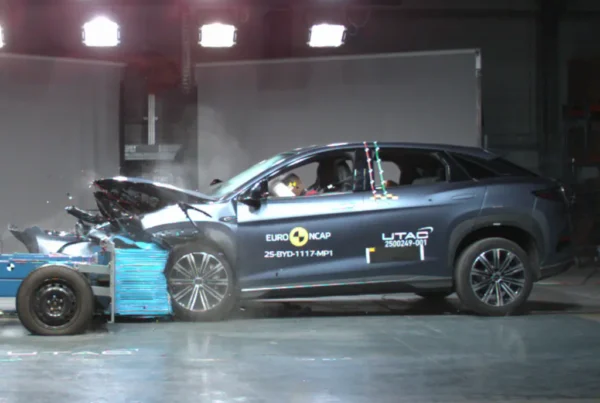British automotive research centre wants clearer safety terminology for new cars
Thatcham Institute in the United Kingdom, which conducts automotive research including crash testing, has supported British insurer Co-op Insurance as it demands safety technology information be made clearer and more accessible to car buyers.
Co-op Insurance announced the ‘Safest Used Cars of 2016′, giving top place to the Volvo V40 with safety pack, but said even though safety is one of the highest priorities, car buyers often are not understanding or engaged with the latest safety technology and how it works, often leaving them bamboozled. With continually increasing safety options and terminology in late model vehicles, it’s believed consumers’ confusion has come from jargon not being fully explained.
“The real-world benefits of life-saving, crash prevention technologies are without question, but if we’re to make progress on reducing the 100,000 rear end crashes that we see on UK roads each year,” said Head of Research Matthew Avery, “demystifying safety and empowering the consumer at the buying stage is imperative.”
Avery said that second-hand buyers can be kept safe by new-car buyers investing in safety options. “The more safety technology is fitted as standard on new cars in the first place, the better used car buyers will be able to access it,” he added. ” In the meantime, simplifying and making information about safety features more widely available has to be the key.”
The top ten cars in the research were 2012 Volvo V40 (with safety pack), 2012 VW Golf, 2014 Nissan Qashqai, 2013 Peugeot 308, 2015 Vauxhall Astra (sold in Australia as Holden/Opel), 2013 Mazda 3, 2012 Mercedes A-Class, 2012 Honda Civic, 2012 Mazda CX-5 and the 2014 Fiat 500L.
Last week, ANCAP (Australasian New Car Assessment Program) condemned manufacturers selling new cars in the Australian market without safety assist technologies which are available on the same vehicles in Europe.

Volvo’s Pedestrian Airbag was the first of its kind and protects from sever head injuries in the unfortunate occurrence of a collision. It provides a buffer from vehicle A-pillars which are part of the car’s solid structure.

Rear Cross Traffic Alert warns to the driver when vehicles or pedestrians approach the rear of the vehicle, out of their line of sight, while reversing.


















